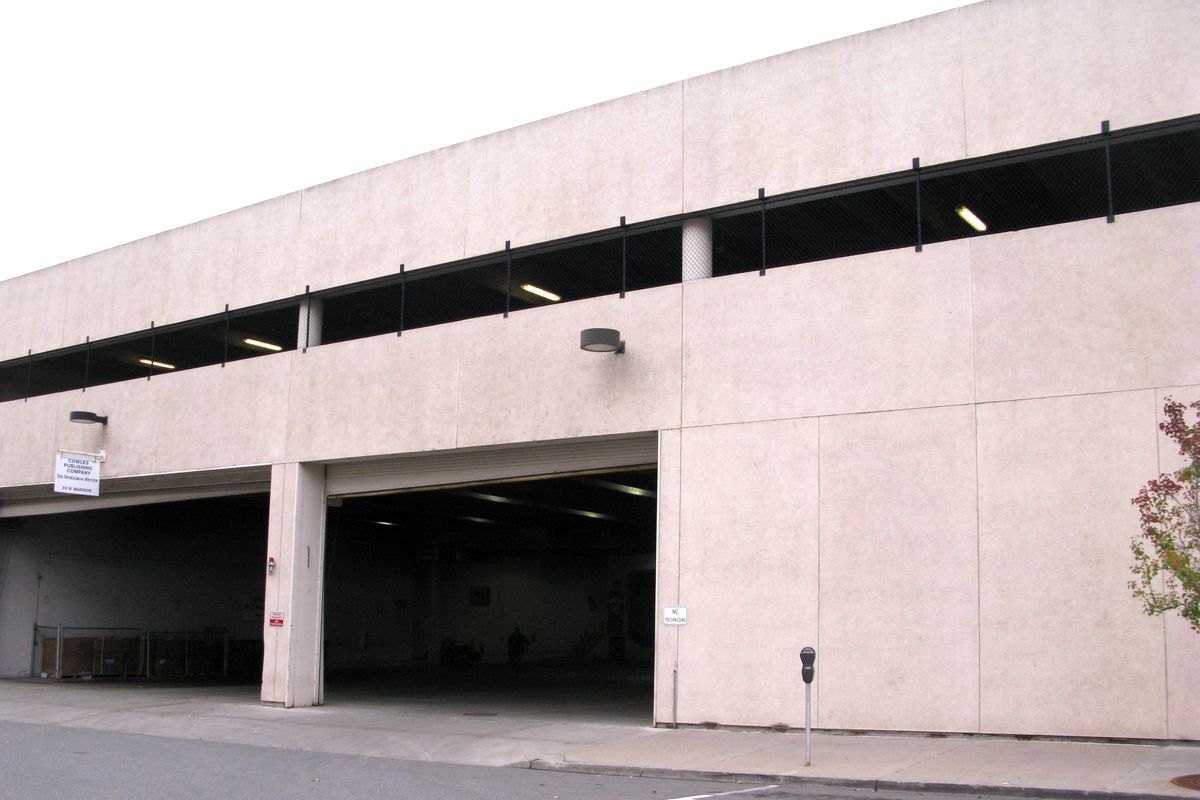Then and Now: Pigeon Hole Parking

Vaughn and Leo Sanders learned about hard work growing up in a timber family in northeast Washington. They were loggers who also ran a silver mine and a lumber mill in Northport.
It was Leo who came up with the idea of robotic parking valet while operating a forklift at the mill. After serving in World War II, the brothers founded Pigeon Hole Parking in 1947. They patented a machine that would lift a car, slide it down the row and poke it into a space in a steel frame.
There were already parking garages with car elevators, but the Sanderses’ system didn’t need a building at all. One or two people could run the entire operation. The Sanderses claimed that spaces in a concrete structure cost $1,200 each versus $300 for a Pigeon Hole space.
The first operating system went in at 22 N. Madison St. in 1950. People came to watch it, magazines ran photos and inquiries came from around the world. The brothers began building units for Los Angeles, Phoenix, New York and Chicago. Cities in Europe and South America, which had narrow streets, expressed interest in the concept. Eventually, Spokane would have four Pigeon Hole machines in use.
There were other parking machines on the market, but few as popular as the Spokane original. A Pigeon Hole structure could store three to five times as many cars as a surface lot. The company went public in 1951. Over the years, Vaughn and Leo Sanders fought off takeover attempts by their own board and stockholders. The company also sued other companies, some run by former Pigeon Hole employees, for patent infringement.
Sales slowed after several years, Vaughn Sanders said, because financing new structures was difficult. A more likely reason was that the machinery often broke down, trapping cars for days at a time while repairs were made. And the machinery couldn’t handle rapid surges in traffic.
Concrete garages, built with modern techniques, looked better all the time. The original Madison Street machine was dismantled in 1961 and shipped to Honolulu. The site returned to street-level parking.
Pigeon Hole went out of business around 1971. Over the years, the brothers stayed in the timber business. Vaughn also operated a fiberglass plant, Elkins Transport, and a patent marketing firm. Leo died in 1993. Vaughn, who had moved to Coeur d’Alene and developed land around Rockford Bay, died in 1998.